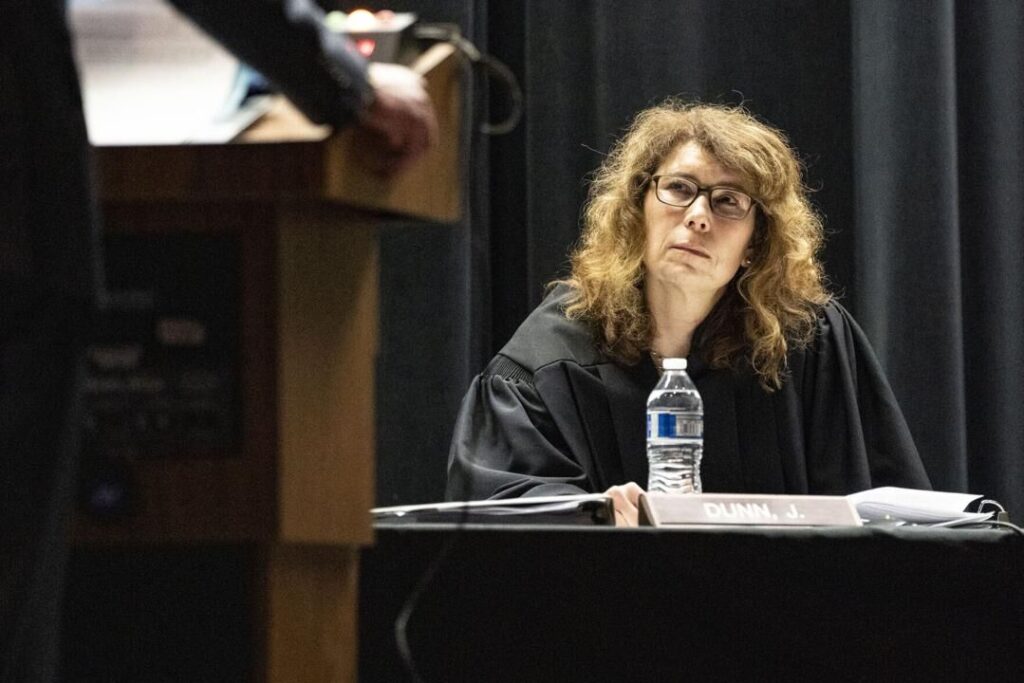Colorado Springs officers relied in good faith on unconstitutional warrant, judge finds

Seven months after a federal appeals court said Colorado Springs police obtained an unconstitutionally-broad warrant to uncover weapons in a suspect’s car, a judge has now upheld the search, concluding that officers were acting in good faith.
Perry Wayne Suggs Jr. has filed yet another appeal to the U.S. Court of Appeals for the 10th Circuit challenging a ruling of U.S. District Court Judge William J. Martínez. This month, the judge decided for the second time that evidence leading to Suggs’ conviction on federal firearms charges did not need to be suppressed at trial.
A panel of the 10th Circuit reviewed the 2018 warrant that police relied upon, allowing them to search Suggs’ home and vehicle for “any item identified as being involved in crime.” That language, the panel said in June of last year, was so open-ended that it violated the Fourth Amendment’s requirement that warrants describe particular things to be searched for and seized.
Courts normally bar unconstitutionally-seized evidence from being introduced at trial, known as the “exclusionary rule.” The purpose of the rule is to deter police misconduct. However, there is an exception if officers believed, in good faith, that they were acting legally, even if the judicially-approved warrant later turns out to be defective.
The 10th Circuit returned Suggs’ case to Martínez to decide if that exception applied. Martínez believed it did.
“The totality of the circumstances in this case,” he wrote on Jan. 25, “lead the Court to conclude that while not the most artfully drafted warrant … it was nevertheless reasonable for Officer [Adam] Menter to rely on the judges’ approval of the residential and vehicle warrants and to search the residence for the items listed.”
Menter had responded to a report of a driver shooting at a pedestrian in Colorado Springs. He identified Suggs as the suspect and obtained an arrest warrant plus a search warrant. Menter’s statement in support of the warrants noted that Suggs had prior felony convictions.
In the description of persons, property and things to be searched and seized, Menter listed firearms, ammunition, vehicles and – under a section labeled “MISCELLANEOUS” – any item “involved in crime.”
After a state court issued the warrant, police arrested Suggs. Later, Officer Teresa Tomczyk led a protective sweep of his residence in anticipation of executing the search warrant. While shining her flashlight into a window of an SUV parked under a carport, she saw guns inside. Although the SUV was not the vehicle involved in the prior shooting, she told Menter about what she saw.
After looking for himself, Menter obtained a second warrant to search the SUV. Based on the evidence seized, a federal grand jury indicted Suggs with being a felon in possession of a firearm and ammunition. A jury convicted him and Suggs received a 90-month sentence.
Shortly before the trial, Martínez declined to suppress the firearm evidence. He believed the warrant’s language clearly referred to the crime Menter was investigating at the time. But the 10th Circuit was not persuaded that the warrant was limited to “the crime,” and could instead encompass “any crime.”
“Nowhere does the warrant reference any specific offense – let alone the particular firearm-related crime under investigation. In fact, the warrant never even mentions the vehicle shooting,” wrote Senior Judge Bobby R. Baldock.
While finding the warrant was unconstitutional, the appeals court left open the possibility that Tomczyk had reasonably believed the search warrant to be valid when she took part in executing it. The government, once more at the trial court level, argued that all factors pointed to a limited search related to firearms and the shooting incident.
Suggs countered that Menter’s allegedly poor training led him to craft an overly-broad warrant, and that Tomczyk could not have relied on the search warrant in good faith because she reportedly never had a copy of it.
Martínez sided with the government’s interpretation, pointing to Menter’s testimony that the officer was aware of the search warrant’s limits at the time. Tomczyk, as someone assisting with the search, need not have read the warrant, the judge added, but she understood that officers were looking for evidence in connection with the vehicle shooting.
“Accordingly, given the reliance in good faith by Officer Menter and the other officers conducting the search in question on the two warrants they reasonably believed to be valid, the court declines to apply the exclusionary rule in this case,” Martínez wrote.
Suggs filed a notice of appeal to the 10th Circuit on Thursday.
The case is United States v. Suggs.














